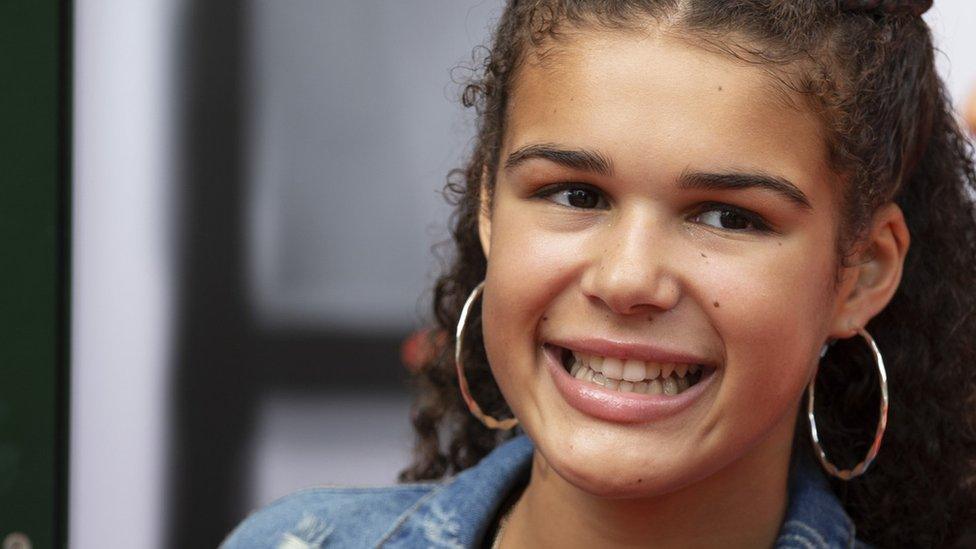Filmmaker helps people connect to their African roots
- Published
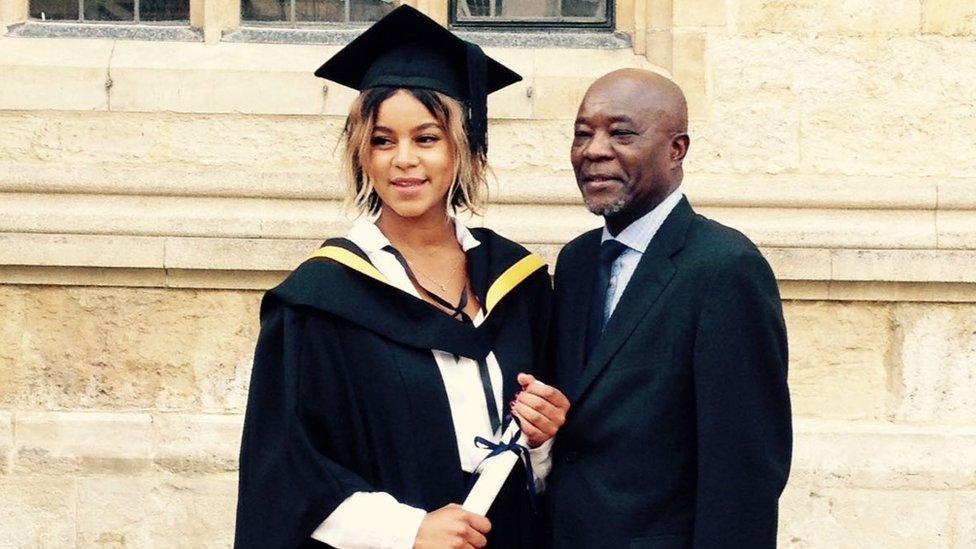
Rebecca Achieng Ajulu-Bushell (pictured left) recorded the interview with her father, Rok Ajulu (pictured right) before he passed away in 2017
A film about a known political activist is helping people of African heritage living in white rural areas feel more "at home".
Rebecca Achieng Ajulu-Bushell made the documentary about her late father and his experience during the apartheid.
She partially shot Breakfast in Kisumu in Cheltenham because it is twinned with Kisumu in Kenya.
Forest of Dean activist Khady Gueye said the film had "really influenced" her.
Miss Gueye met Miss Ajulu-Bushell in 2020 when she organised a local Black Lives Matter protest.
"We are two mixed race women who have experienced not being white enough and not being black enough," she said.
Allow YouTube content?
This article contains content provided by Google YouTube. We ask for your permission before anything is loaded, as they may be using cookies and other technologies. You may want to read Google’s cookie policy, external and privacy policy, external before accepting. To view this content choose ‘accept and continue’.
"The film made me understand the weight of my blackness and how I've come to terms with my identity in a very white rural area."
British-Kenyan Miss Ajulu-Bushell was the first Black woman to swim for Great Britain, external and recently turned to a career in filmmaking.
Her documentary follows an interview with her father, Rok Ajulu, a leading Kenyan academic who died in 2017, and his role in the struggle against apartheid in South Africa.
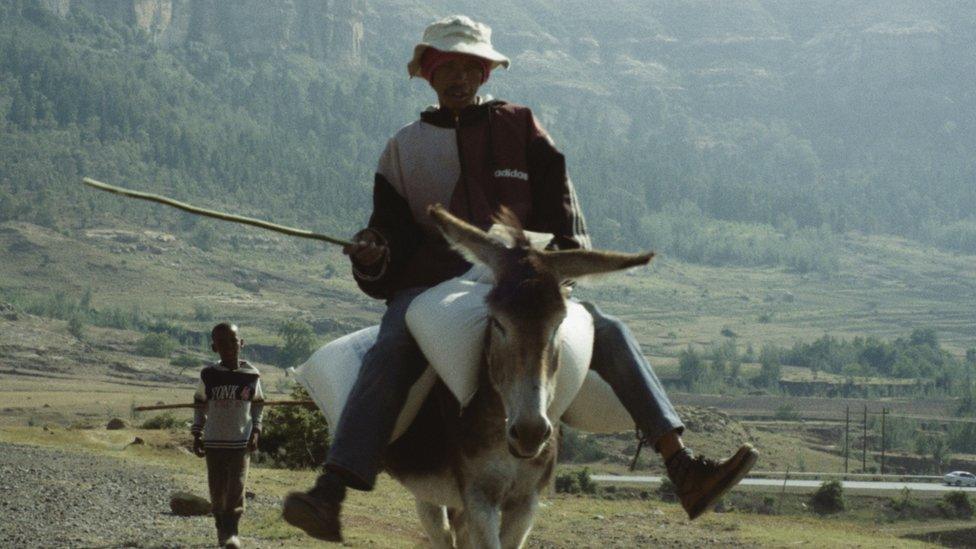
Miss Ajulu-Bushell said: "My father told me about his life, being in prison, meeting my mother all up until 1994 when I was born and when apartheid ended"
Mr Ajulu was expelled from Kenya in the 1990s after opposing the regime of then president Daniel Arap Moi.
Josh Jones from Cheltenham previously lived in Uganda with his family and said the film made them feel "at home".
Mr Jones met his wife in Uganda and she is of Luo descent, a group of people who are also found in Kenya.
'Feeling of home'
He said his family noticed the filmmaker's surname was a Luo one and so they were inspired to watch the film.
"You can feel a long way from home, especially when Gloucestershire is very rural and mainly white," he said.
"Rebecca's film gave us a feeling of home, hearing the voices of the Luo people.
"Cheltenham has a big community of Luo people because Cheltenham is twinned with Kisumu."
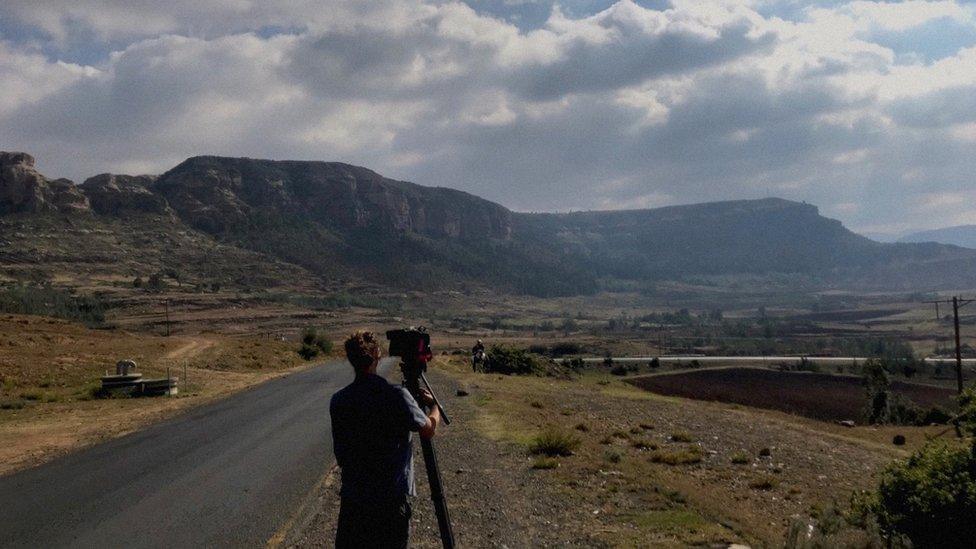
The film was shot in Cheltenham and Kenya
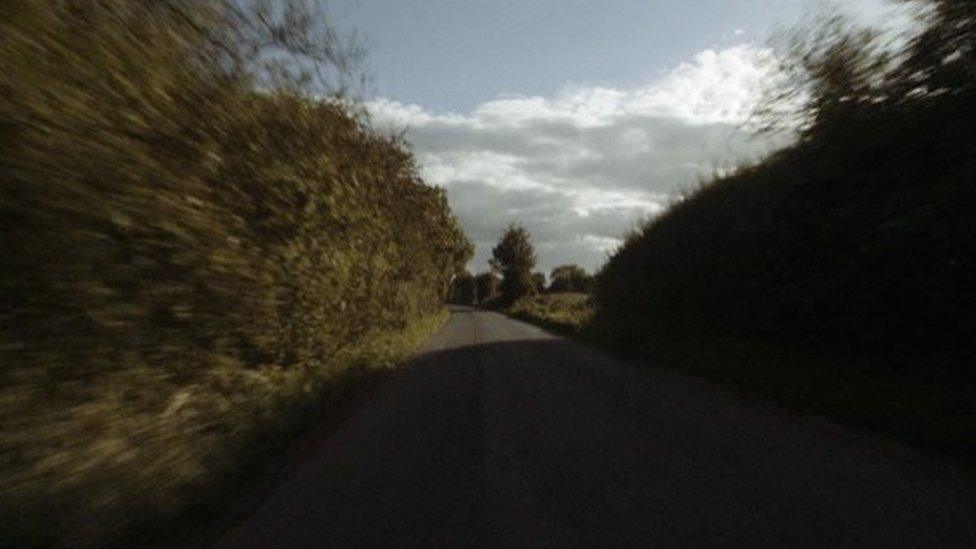
Some of the Cheltenham shots used are of A346
Miss Ajulu-Bushell, from Bourton-on-the-Water in the Cotswolds, said: "Cheltenham is now important to me because it has this connection to my father's homeland and my homeland that I didn't know about.
"Making this film gave me a real sense of purpose."
The film has been selected to feature in the British Council's UK Documentary Catalogue, external.
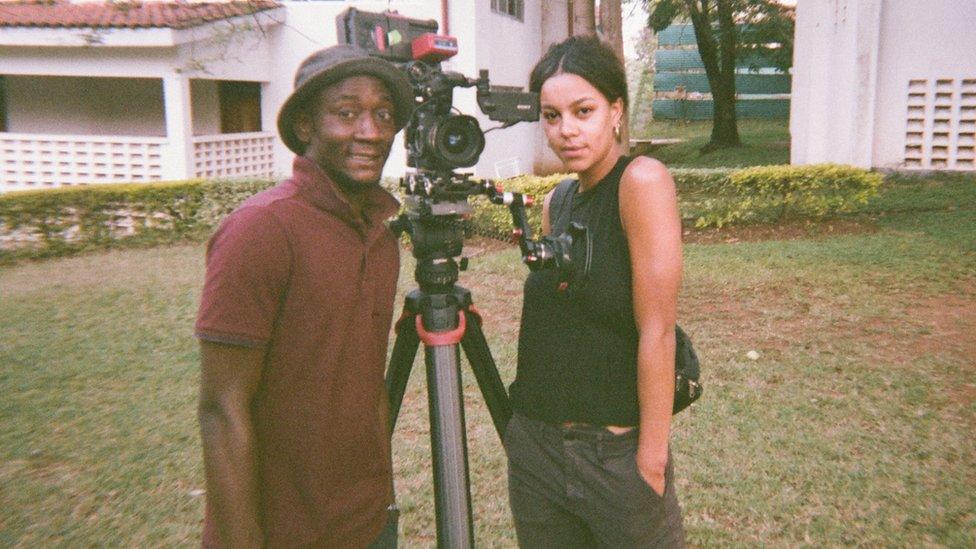
Miss Ajulu-Bushell said: "Cheltenham is now important to me, because it has this connection to my father's homeland and my homeland that I didn't know about"

Follow BBC West on Facebook, external, Twitter, external and Instagram, external. Send your story ideas to: bristol@bbc.co.uk , external
- Published14 May 2021

- Published10 April 2021
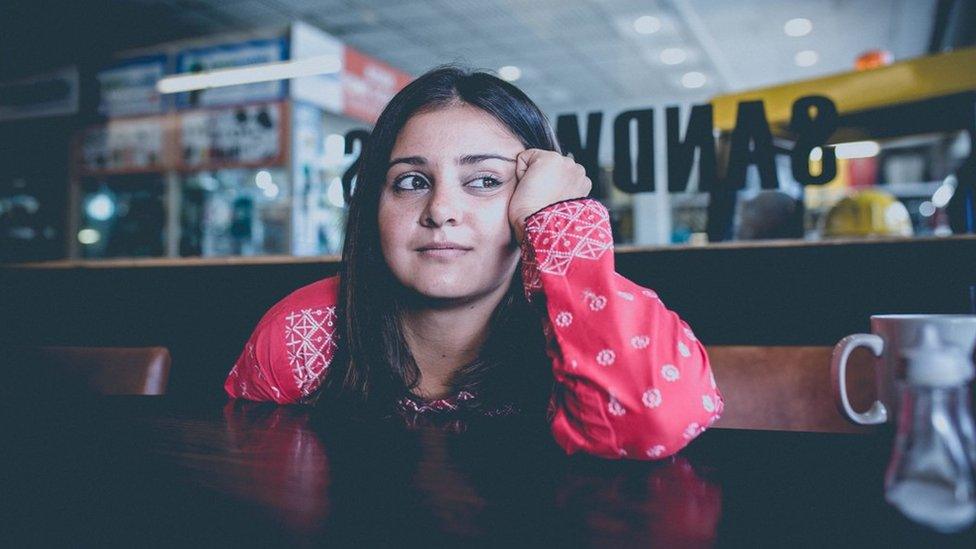
- Published10 March 2021

- Published4 December 2020
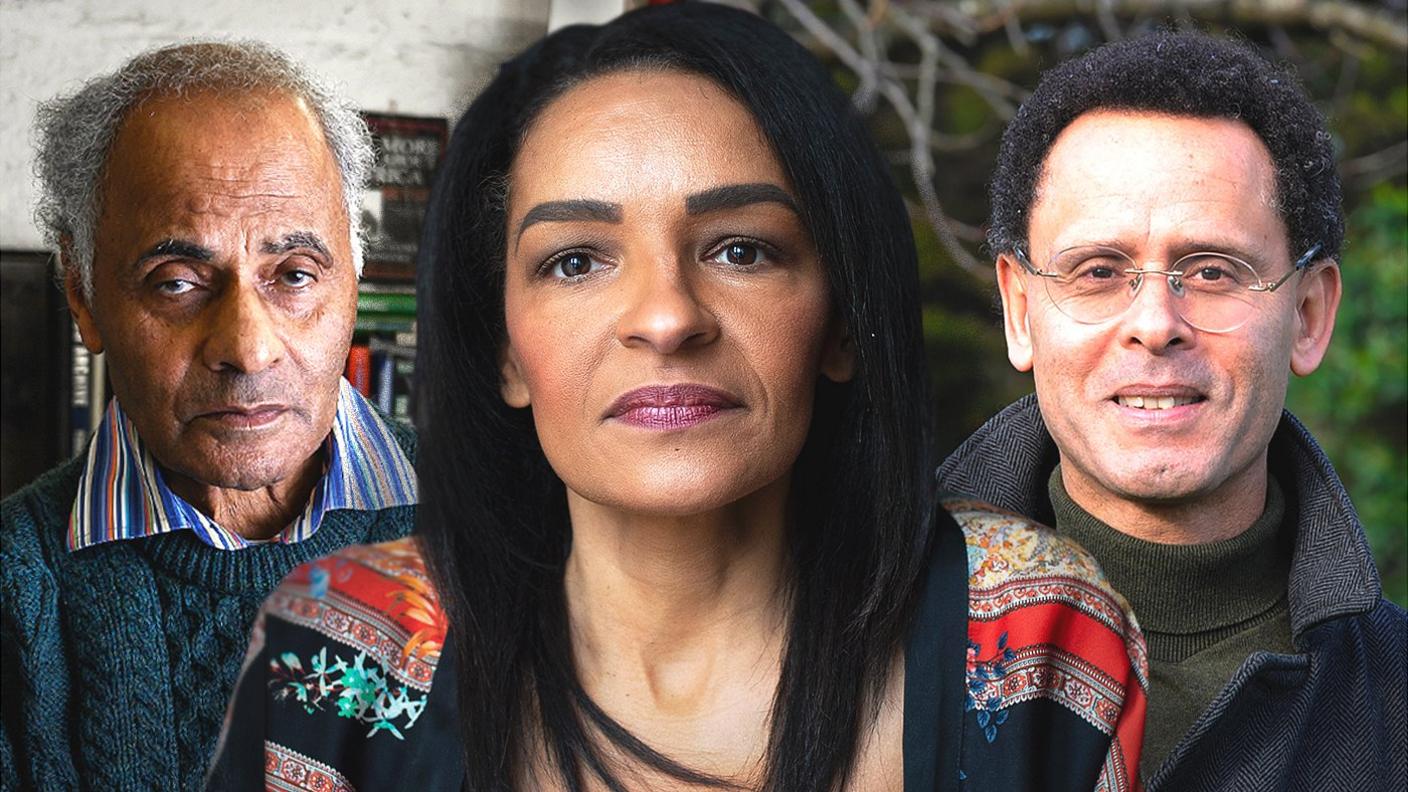
- Published9 July 2020
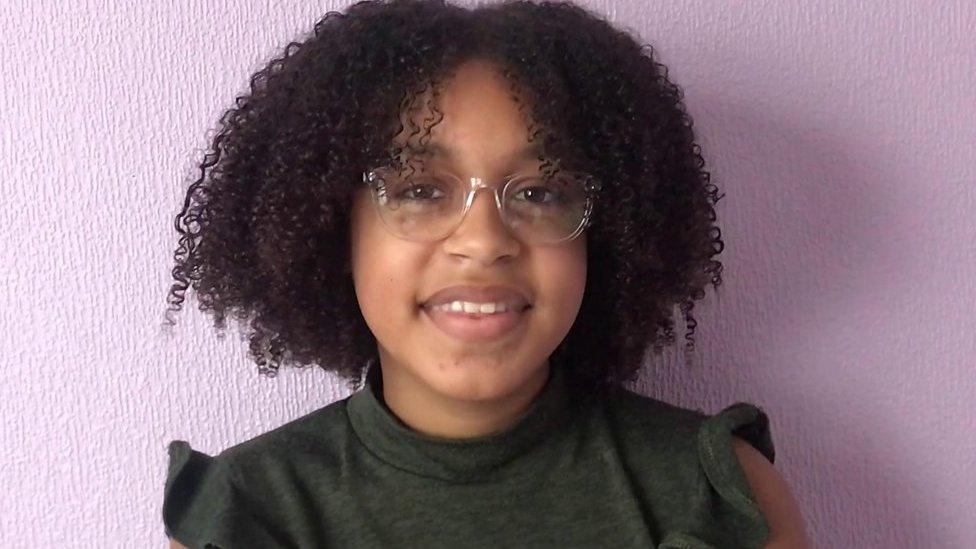
- Published18 March 2019
